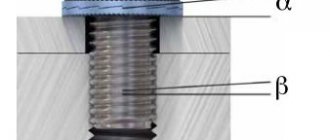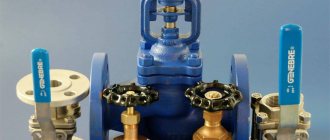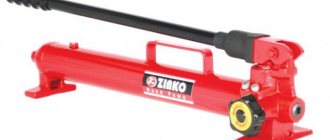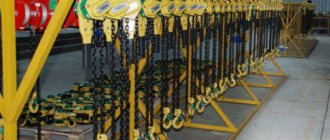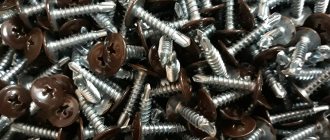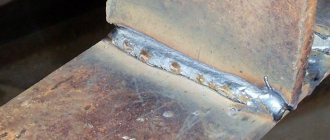Threaded connections appeared among mankind many centuries ago. The first mentions date back to the times of Ancient Rome, but they found active use only in the nineteenth century, when French engineers invented screw threads.
Nowadays, it is difficult to imagine any serious mechanism without all kinds of bolts, nuts, washers... We see them everywhere, from gadgets to spaceships.
Often, one intensive compression of the thread is not enough for reliable fastening of the structure. External factors such as temperature changes or vibration can weaken connections, which in some cases can lead to very serious consequences.
Today we will tell you how to reliably protect threaded connections using thread lockers, using the example of extreme sports equipment, and also look at how they can be used in your car.
Blue thread locker (removable) - Creates a strong elastic connection that does not lose its properties over time. May be deleted. Seals the connection and provides vibration resistance. Resistant to most chemicals. Suitable for fasteners up to 20mm diameter. Easily removed using hand tools. Dries in 20-30 minutes on most metal surfaces. Complete hardening occurs within 24 hours.
Temperature range: −59°С…+149°С
Shear Strength: 1600 psi (112 kg/cm2)
Thread locker-gel red (non-removable)—Gel locker for connecting threaded parts that do not require frequent disassembly. New convenient packaging with a dispenser allows you to better control the application of the product and does not spread. Suitable for fasteners up to 25mm diameter. Seals the connection and imparts vibration resistance, quickly filling the space between the threads, providing the parts with a strong and tight connection, preventing loosening due to shocks and vibrations.
Seals threads to prevent rusting and corrosion. Once cured, the fixative is non-toxic. Resistant to most chemicals.
Temperature range of use from -59°С to 149°С,
Shear strength 3000 psi.
Using thread locker at home
Let's look at the use of a retainer using the example of preparing winter equipment for a popular extreme sport like snowboarding.
In particular, on a board designed for slalom disciplines, where speeds reach 100 km/h.
Not only the speed characteristics of a snowboard depend on the reliability of the rider’s fixation to the board, but also controllability, the loss of which can lead to serious falls, threatening the life and health of the athlete.
To avoid disastrous consequences, we will treat all the bolts connecting the boot mounting base and the board itself with thread locker.
In addition to the thread locker, we only need a screwdriver.
We clean the bolt from rust dirt, if any.
Take the thread locker out of the package and shake it thoroughly.
Cut the tip to the required nozzle size.
Apply the product to the surface of the bolt.
We tighten it into place and repeat the procedure with all the other bolts.
That's all, now the snowboard is ready for new competitions and training on the slope!
Using thread locker in repairing car components
In the car, blue (removable) thread locker can be used in a huge range of different applications. It seals valve cover bolts, oil pan bolts, and can also be used anywhere where spring split washers (grower washers) need to be replaced. And much more.
For example, on a car, the side mirrors were constantly unscrewed due to shaking:
The procedure is exactly the same, for it we will need all the same tools.
Unscrew and clean the bolt and apply thread locker.
We tighten the bolt into place and forget about the problem.
In addition to the blue retainer, there is a red permanent sealant, designed for more aggressive use, in mechanisms where very reliable fixation is required.
The method of its use is no different from blue.
Excellent examples of the use of such a clamp are the mounting of engine rollers and pulleys.
These elements are constantly under high load, and if they are not securely fastened, failure of any of these rollers can be fatal for the entire engine as a whole.
That's all, good health to you and your car! Bye!
If you have dealt with flax strands, then remember what a hassle it is. Winding takes at least an hour - the connection cannot be assembled the first time, you definitely need to unwind it and wind it again, then remove the protruding threads and cover the thread with paint to make it look more or less aesthetically pleasing. And this is subject to professional experience working with flax. What can we say about amateurs? An ordinary person - the owner of an apartment or house - needs a material for everyday life that will cope with the problem in a matter of minutes and will be as easy as possible to use.
Anaerobic sealants meet these requirements. Nowadays, when everything has to be done quickly, these innovative polymer gels come to the rescue in a variety of situations - both during planned repairs and in emergency cases.
Anaerobic sealant is a viscous gel that hardens inside the threaded joint. Where there is no access to oxygen. As long as the sealant is used in an open space, it is pliable and spreads easily along the threads. Does not spread and holds its shape well. Due to the gel structure, the time for applying the sealant and twisting the joint is only 20-30 seconds.
Types of thread lockers
Thread locker, despite the huge number of its variations, can be divided into 3 groups: green, red and blue. Although this division into shades is quite extensive, it makes it easier to understand what a thread locker is and what types they come in. Thanks to the color, you can determine how durable the sealants in this category are.
The blue thread lock helps protect the element from various loads, vibrations and other mechanical influences. They are classified as medium strength.
The red thread lock is considered the most reliable. When a high-strength connection is required, sealants of this particular color range are used. These include heat-resistant and high-temperature compositions. Often such adhesive mixtures are called “one-piece”, because in most cases they can be dismantled only with the help of plumbing tools.
There are also green thread lockers available. Their use in cars is quite rare. It is especially impossible to use such compositions where the joints have large diameters. Such mixtures are considered the weakest and easiest to dismantle.
For threaded connections, there is a division not only by color, but also by temperature conditions under which the composition can be applied and used. Adhesives are divided into conventional and those suitable for aggressive conditions (high temperature).
Another division of compositions for hermetic coupling is the state of aggregation. The products come in paste form and in liquid form.
Anaerobic thread locker means that the mixture is stored in a closed tube where there is air. This way they do not lose their properties and do not give any reaction. Most sealants are anaerobic.
Many adhesives have a function other than just fixing threads. The compositions can also be used for adhesion of surfaces, sealing seams after welding and other purposes.
We compare threaded fasteners from different manufacturers
In terms of composition, any thread locker consists of the same components. When you go to a specialized store, you will see a lot of offers: “Permatex”, “Abro”, “Loctite”, “Wurth”.
Almost all manufacturers of automotive chemicals have these sealants in their product range. Why, with the same declared characteristics, does a tube of a good fixative (according to the sellers) have a different price?
The most expensive segment is sealants used by automakers. Permatex compounds are used for permanent connections. On the conveyor belt, the glue is packaged in barrels, but exactly the same product is offered on the shelves in small containers. Manufacturer Abro offers economical prices . This does not mean that sealants with this logo are of low quality, just that the chemical concern has organized mass production in various countries, which reduces production costs. The blue composition of this brand is used not only as a thread locker, but also as a sealant for sealing defects in welds.
Loctite 270 has gained popularity among car enthusiasts due to its resistance to petroleum products. The chemical composition allows it to be applied to lightly soiled surfaces. Special additives enhance adhesion when processing neutral surfaces: stainless steel, galvanized, anodized coatings, aluminum.
Video review of the most popular thread lockers
Composition of thread locker
The anaerobic fixative, which is “detachable”, contains various modifying additives, and the main component of such agents is polyglycol methacrylate.
However, to understand how to use sealant and which one is better to choose, a rough classification by color is not enough. It is quite conventional, so it is important to know about two main and most important points.
First of all, attention should be paid to what operational characteristics the lock has. It is also important what dimensions the connection has and what material it is made of.
Often in the composition of the sealant you can find such components as: dimethacrylate ester, acrylic acid and much more.
Why are sealants needed?
Initially, glue and various thread locks were intended to carry out various manipulations for vehicle repair. However, adhesive products have been used not only as automotive sealant, but also for other various areas.
Before sealed fasteners, craftsmen used locknuts, grommets, and many other devices. You can find these types of thread fasteners in various car components, as well as in household appliances and other equipment.
Fasteners perform many functions, including:
- thread sealing;
- fixing connections;
- protection of the surface from corrosion (applies to anaerobic mixtures).
How to Choose the Best Thread Locker
When choosing, you need to pay attention not only to the shade of the sealant. It is important to take into account how long the composition dries, how much it is possible to unscrew the bolt after applying the glue and other points. The main selection criteria, with a detailed description, are presented below.
Fixed moment of resistance
One of the main problems is that manufacturers do not indicate for what size joint the product can be used.
The torque depends on the diameter of the bolt. You should not use red sealants for small threaded connections. If you neglect this rule, then there is a possibility of sealing the product forever.
It is important to know about such a feature of fixation products as the indication of viscosity on packages in different units of measurement. The value indicated in the SI, GHS or other variations depends on who the manufacturer of the sealant is.
State of aggregation
As noted above in this article, the consistency of the product can be paste-like or liquid. Flowable mixtures are more suitable for those connections that are closed. They better envelop the threads, thereby more reliably sealing bolts, nuts, etc. However, applying liquid masses is not always convenient, because they spread.
Pasty compositions do not spill. On the one hand, this is an advantage, because the likelihood of staining the surface and applying the composition past the target is reduced. But at the same time, they cannot work with all types of connections, because it is not always convenient to get to certain elements.
The choice of how fluid the product should be depends on the size of the threaded connections. The smaller they are, the more liquid the mass will be needed for repair work, and vice versa.
Resistant to process fluids
This selection criterion implies that thread lockers should not be afraid of gasoline and various types of lubricants. The strength of most adhesive products is quite high, so they are not afraid of the above products during operation. However, this point should be taken into account in order to avoid negative and unexpected consequences.
Polymerization time
It is important to consider not only how strong the thread is held in place, but also how long the sealant takes to dry. One of the main disadvantages of most products is that they do not set immediately. For this reason, the products can be allowed to work at full capacity only after the full time period required for hardening has passed.
When the repair work is not urgent, then using a thread locker is quite reasonable, but otherwise you will have to think about whether it is worth using it.
How to use?
As mentioned earlier, anaerobic sealant cures very quickly. However, despite this, working with it is not difficult and even a beginner can cope with it. To achieve the desired effect, you just need to follow the instructions for using the product, because the sealant is sold completely ready for use and does not need to be pre-prepared or mixed with solvents. It is better to completely clean the working surface in advance, and then degrease it - this will enhance the reaction and the composition will set much better.
Instructions for use:
- We take the container with the composition and shake it thoroughly, thereby mixing the contents.
- Open the container and apply the product around the perimeter of the connection.
- Next, we completely screw in the elements to which the sealant was applied.
- The excess must be removed immediately, without waiting for the composition to dry.
- Let the sealant dry, leaving it for about half an hour (the gel dries differently, depending on the diameter of the joint being processed and the room temperature) and then check it under a pressure of 10 atmospheres. If the ambient air temperature does not reach + 15°C, the sealant must be heated. If after checking there are no leaks, then a day later you can test for functionality under a pressure of 40 atmospheres.
To ensure maximum bonding, the composition can be applied to both surfaces, that is, inside and outside. But this must be done carefully so as not to apply too much sealant. If plastic pipes are processed, they must be treated with a special activating agent before work. Quite often, a brush is included with the container, which greatly simplifies the application process.
Difference between red blue and green sealant
Colored compounds have already been mentioned in this article. To better understand the fixative of each shade, it’s worth talking about each in more detail.
Blue
The main purpose of such a sealant is the adhesion of metal pipes. The blue composition works effectively, and its stability indicator is quite high.
They began to use it as a household product quite recently, whereas previously it was used for large equipment (airplanes, cars, etc.). The composition is easy and convenient to apply. To work with sealant of this category, you do not need any equipment.
Red
The red compound for fixing threaded connections is suitable for old pipe structures and sealing threads, which has served for quite a long time. In time, such products will dry faster than blue ones, but this does not affect the quality of sealing.
After drying, the adhesive is not afraid of temperature changes. To apply it to the joints, you will need a special device. You can work with this fixative without removing the old layer of glue.
Green
This lineup is not as strong as the previous 2. They can temporarily fix the thread. Typically used for fastening plastics and alloys. Easily dismantled, regardless of how much time has passed after application.
The best anaerobic sealants
When choosing what to fix the thread with, you should pay attention to anaerobic compounds. They can be used for bolts and nuts of various diameters. Below are the best brands of sealants in this category.
Loctite 574
This tool is familiar to every second motorist. The anaerobic composition sets within 24 hours. If the pressure is insignificant, then the joints that have been treated with such a mixture can be used almost immediately.
The strength of the sealant is not affected by temperature changes, chemicals, etc. Loctite 574 has a long service life.
The only thing that does not allow us to call this composition the best of all that have been developed to date is its cost. Many people complain about the high price tag, even for a small tube.
The best winding sealants
Winding compounds occupy a special place in the ranking of the best sealants. Below are the most popular and proven brands.
matrix threads
This product can be used both for metal structures and for connecting plastic elements. Thread sealant can even be used as a sealant for pipes through which drinking water flows.
It sets quickly, prevents rust formation, is suitable for use in aggressive conditions and has many other advantages.
Henkel tangit uni lock
The composition can be used as a sealant for threaded connections on pipes with hot, cold and drinking water.
Among the main advantages are the following:
- ease of use;
- threaded elements can be adjusted;
- Suitable for plastic and metal.
Masterprof mr uis 13 0199
This thread is often used in plumbing. The linen product is perfect for those cases when it is necessary to carry out repair work on sealing the water supply or heating system.
Users note the quality of the thread and the reliability of the seal that is obtained after winding it.
Valtec fum tape
This sealing tape can be used at temperatures from -15 to 180 degrees. After its application, no more sealants are required.
The tape can be mounted on the surface of almost any material. The composition can be used as a substitute for mastic.
Best car fasteners
Automotive sealing compounds have a lot of competition, due to the fact that the fasteners were originally intended specifically for threaded connections in cars.
If you need a reliable tool, then you should choose one of the 3 presented below.
Permatex 59214
The mixture is used as a thread sealant in cars. This brand belongs to the compositions of medium strength.
“Permatex 59214” completely protects the connection from leaks, can withstand temperatures above 190 degrees and is used to seal many vehicle components.
Permatex High Temperature Thread Locker
This adhesive is stable in use at elevated temperatures and is used for working with metal.
It perfectly seals and secures threaded connections, does not deteriorate due to vibration and does not cause rust. You can purchase the coupling compound for a reasonable amount, which is quite consistent with the quality of the adhesive mixture.
Abro tl 342 threadlock
When you need to prevent loosening of connecting elements or reliably seal threads in a car, this is one of the best means.
The composition has average strength, dries within a day, is not afraid of chemicals and is easily removed using available means.
Properties
In general, they have similar qualities:
- fixing and sealing any threaded connection;
- ensuring vibration resistance of fasteners;
- creating a connection with shear resistance up to 112 kg/cm2 (for blue) or 210 kg/cm2 (for red);
- stability towards various chemicals;
- protection against rust and corrosion;
- resistance to temperature fluctuations.
The blue clip can be removed using hand tools. Red cannot be removed by anything: to disassemble the connection it should be heated to +150C.
The best curing fixatives
If you need hardening fixatives, then it is better to choose from the following 3 certified brands.
Lmg mg 414
This composition can completely replace retaining rings and locking washers. The product easily withstands temperature changes and mechanical stress.
Also, the hardening sealant is not afraid of exposure to various engine fluids, including gasoline, antifreeze, and the list goes on.
Mannol 9927
This brand is best suited in cases where a very tight connection is required that is not afraid of stress. It is an analogue of mechanical fixation methods and prevents the loosening of nuts and bolts.
Coupling mixtures are characterized by their relatively low cost and reliable sealing of threads for a long period of time.
Avs avk 133
Suitable for fixing structures that are classified as “non-removable”. This substance does not cause corrosion, reliably seals threads, and is not afraid of use in communications such as gas pipes, water pipes, etc. Prices for the adhesive are quite affordable (about 350 rubles).
What fixes the connections?
Grover [1].
This is a spring split washer used as a locking element. Grovers cannot be used on deformable materials such as aluminum and its alloys, as well as copper or bronze.
Polymer insert [2].
A bushing is inserted into a special groove, which is deformed when the nut is screwed onto the thread. Once tightened, the polymer insert increases friction, preventing the connection from loosening due to shaking. The disadvantage of such fasteners is the limited number of assembly/disassembly operations.
Folding washer [3].
Such washers are usually made of mild steel and equipped with claws. One of the legs is bent to the edge of the nut, which must be secured against unscrewing, and the other is fixed, if possible, on the part being tightened. It is clear that such parts are disposable.
Glue or cosmetic varnish [4].
Nail polish or glue are often used for locking threads. The main advantage of such techniques is simplicity and confidence that things won’t get worse. But these drugs do not work as intended, so you should not expect serious protection from them.
Cotter pin [5].
A metal rod is inserted into the through hole and its ends are bent. As long as the cotter pin is in place, the nut will not come off. It is clear that cotter pins can only be used with special nuts and bolts that have a hole. In addition, they will not help fix the bolt or stud in the body of the part.
Nut with safety collar.
Those who dealt with the front hubs of Zhiguli cars probably remember a large nut, the thin collar of which had to be bent into the grooves of the axle in two places. The disadvantage of this solution is the need for a special part such as a bolt and a rather rare nut.
Lock-nut.
The most primitive solution in the fight against self-loosening is locknuts. The additional nut is pressed against the main one and locks it. This solution cannot be used everywhere - sufficient space is required on the threaded part of the stud or bolt.
The best plastic sealants
The last category of sealants that will be discussed in this article is plastic.
Loctite vr 5921
The pasty adhesive mass has shades of brown and red. Professionals and users speak positively about the product on forums on the Internet.
The composition is completely safe for the environment and human health, is stored for a long time and does not deteriorate after a long period of time.
Despite many advantages, the product also has a drawback - the price. However, the cost of the product is quite justified.
Img mg 414
This plastic solution is used in plumbing, for cars and for construction purposes. The composition is vibration resistant, prevents metal corrosion and can withstand temperatures up to 145 degrees.
Useful
In order for the connection to last longer, it must be properly sealed. To do this, it is worth taking into account the temperature characteristics that the manufacturer indicated on the packaging of the product.
Only after reading the instructions can you start working with sealants.
It is important to understand that most of the compounds do not make the connection strong, but only fix the thread and make it tight. To completely prevent leakage, you need to coat the entire circumference of the connecting elements with the mixture.
Many people have questions about how to replace thread locker. The means can be very different, including improvised ones. For example, you can seal a thread by using superglue, regular varnish, and much more.
Durostone® Fasteners and Fasteners
Durostone® fasteners are used in technical applications where high demands are placed on electrical, chemical and thermal properties.
Durostone® GRP threaded rods are based on epoxy or polyester resin systems laminated with glass fibers with special additives and a unique structure.
Compared to steel, Durostone®:
- Significantly lighter;
- Has electrical and thermal insulation effects;
- Has good rust resistance;
- Resistant to aggressive environmental elements.
Advantages and disadvantages
Like all products that are used for construction, repair and other types of work, sealants have their strengths and weaknesses. The advantages of adhesive mixtures include:
- the ability to operate trains in aggressive conditions;
- relatively low consumption of funds;
- ease of application of the adhesive mass;
- resistance to vibrations and mechanical stress;
- a wide range of materials that can be bonded using sealants.
It is worth highlighting some of the disadvantages of thread lockers. They are as follows:
- increased content of various chemicals in most formulations, due to which they can be dangerous to human skin and respiratory organs, as well as to the environment;
- preliminary surface preparation work is required;
- Long drying time for thread locks.
Liquid or paste threadlockers, which should you choose?
It all depends on the type of connection. For small diameter bolts, liquid thread locker is used. It spreads evenly over the surface and is held in place by surface tension forces.
Paste-like compounds are used on large-diameter fasteners. In addition to the fact that they hold well over a large area of application, the coefficient of friction when twisting is reduced.
Plastic compounds are also used for sealing. They are not used as glue, but cracks and other defects can be repaired.
